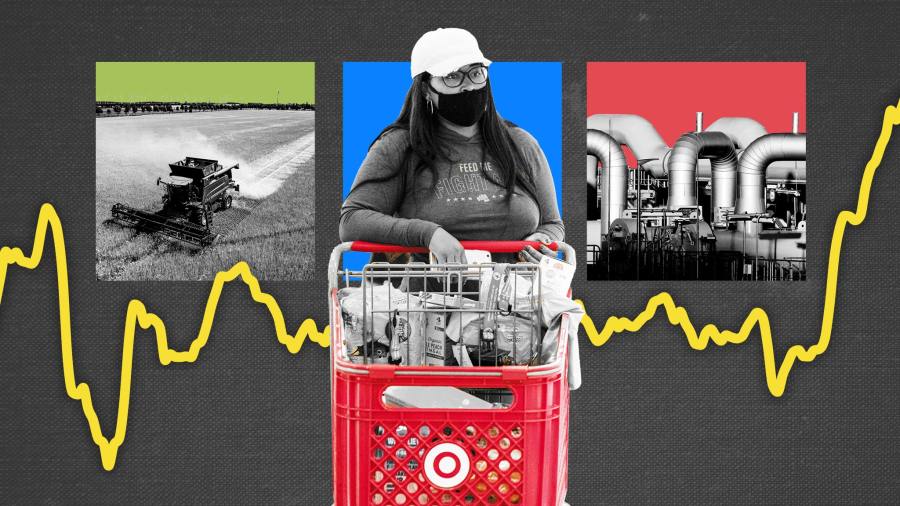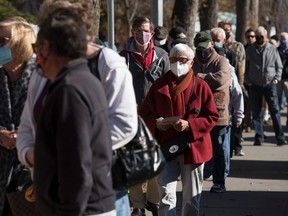ArmyRick
Army.ca Veteran
- Reaction score
- 3,714
- Points
- 1,040
So I want to start a new discussion about those of us who own or manage a private business. Full disclosure, this is in relation to the discussions on Pierre Polivierre as the most likely front runner for the CPC and how people see him as "just not the guy for the job". I am very biased. AGAINST TRUDEAU. I have been a private business owner since 2012. I went into farming (all farmers are privately owned business) and mine is a little unique as I grow livestock from birth to slaughter and sell mostly direct to customers. How much cash your average person has impacts my business. Now you understand my background and approach to this.
I am very pro-PP. He has a very keen understanding on how cash should flow in a cycle in a healthy economy. He is also interested in facilitating busines growth by removing gate keepers and barriers. He pays very close attention to the detail things like how much it cost to get a cup of coffee, fill up your gas tank or buy a new home. The governing Liberals, seem oblivious to these problems. Or down play them. Or re-direct false flags right back at the Conservatives. The only REAL job growth in Canada in the last 2 years has mostly been federal government employment. Say what? THAT DOESN'T HELP the economy folks.
Now, for all you government full time employed people that comment on these things, I will probably offend you and thats tough, you need to hear the truth. For you folks commenting on how "its not so bad" or "conservatives NEVER!" mind set but you don't understand marketing, financial loss/profit, losing customers, direct and indirect financial impact (people having trouble paying for gas is a big reason I lost so many customers this year as an example). Now add to that, I have heard many knee jerk solutions from those not impacted like "ohh make a benefit for them" or subsidize them for their losses".
While true their are some but very few government programs that can help, they are TEMPORARY and should not be a long term solution. They usually have steep qualifications to get some of these benefits to begin with.
What policies do I want to see implemented by government at all levels?
1. Get off this fake green energy BS. Open up the gas industry full flow and lets dominate the market. Get Canadians working and making money. Canadians making money, spend money. And now you have an economy.
2. There are ways to safely and environmentally tap into other natural resources (Why are so many forest burning down when the experts have been saying we need to cut in fire breaks as an example. More product, more cash)
3. Remove AS MANY government barriers as possible. In my field, beef farming, I can tell you that there is so much waste in the OTM protocols (Over Thirty Months of age cattle) that its literally hundreds of thousand of pounds of beef thrown out every year. For a crisis that was actually an American problem but they blamed us. In 2003. I have also spoken of the waste of hides and fats from animals, there is more economic opportunity.
4. Trim government employment down, down, WAY down. Too many people employed for too much money. And we citizens are not getting our moneys worth.
5. Facilitate Green Wave in opening 3D Ocean Farms in as many places on the Canadian coasts as possible (Green Wave 3D ocean farms are amazing).
Gotta scoot, more to follow.
I am very pro-PP. He has a very keen understanding on how cash should flow in a cycle in a healthy economy. He is also interested in facilitating busines growth by removing gate keepers and barriers. He pays very close attention to the detail things like how much it cost to get a cup of coffee, fill up your gas tank or buy a new home. The governing Liberals, seem oblivious to these problems. Or down play them. Or re-direct false flags right back at the Conservatives. The only REAL job growth in Canada in the last 2 years has mostly been federal government employment. Say what? THAT DOESN'T HELP the economy folks.
Now, for all you government full time employed people that comment on these things, I will probably offend you and thats tough, you need to hear the truth. For you folks commenting on how "its not so bad" or "conservatives NEVER!" mind set but you don't understand marketing, financial loss/profit, losing customers, direct and indirect financial impact (people having trouble paying for gas is a big reason I lost so many customers this year as an example). Now add to that, I have heard many knee jerk solutions from those not impacted like "ohh make a benefit for them" or subsidize them for their losses".
While true their are some but very few government programs that can help, they are TEMPORARY and should not be a long term solution. They usually have steep qualifications to get some of these benefits to begin with.
What policies do I want to see implemented by government at all levels?
1. Get off this fake green energy BS. Open up the gas industry full flow and lets dominate the market. Get Canadians working and making money. Canadians making money, spend money. And now you have an economy.
2. There are ways to safely and environmentally tap into other natural resources (Why are so many forest burning down when the experts have been saying we need to cut in fire breaks as an example. More product, more cash)
3. Remove AS MANY government barriers as possible. In my field, beef farming, I can tell you that there is so much waste in the OTM protocols (Over Thirty Months of age cattle) that its literally hundreds of thousand of pounds of beef thrown out every year. For a crisis that was actually an American problem but they blamed us. In 2003. I have also spoken of the waste of hides and fats from animals, there is more economic opportunity.
4. Trim government employment down, down, WAY down. Too many people employed for too much money. And we citizens are not getting our moneys worth.
5. Facilitate Green Wave in opening 3D Ocean Farms in as many places on the Canadian coasts as possible (Green Wave 3D ocean farms are amazing).
Gotta scoot, more to follow.









